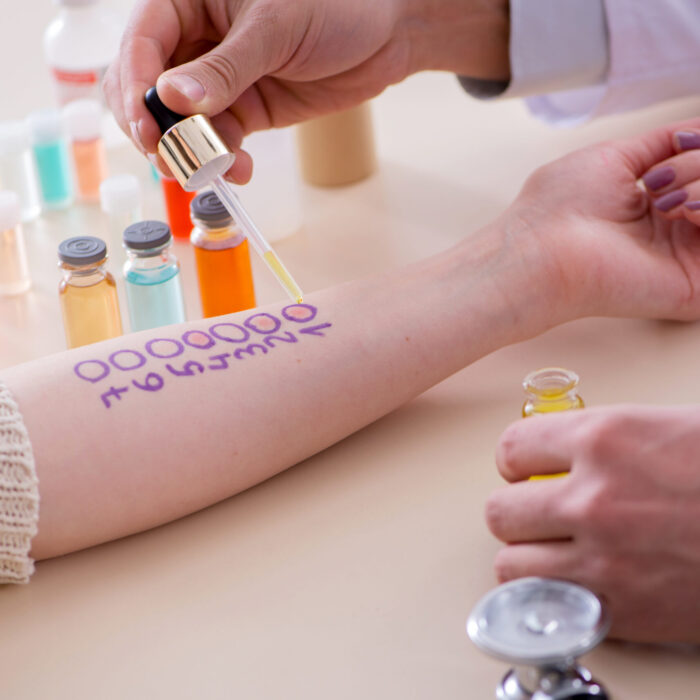Blood Testing
While skin tests remain the gold standard and most common form of allergy testing, they may not be appropriate for everyone. Infants and very young children, those taking specific medications, or those with certain medical conditions often benefit from a secondary option: blood testing. When our immune system overreacts to an environmental trigger an allergic reaction occurs producing heightened levels of Immunoglobulin E (IgE) in the bloodstream. Interpreting the results of blood-based allergy tests requires expert knowledge and experience. Our allergists are specialty trained to analyze your results to pinpoint your allergic triggers.
Blood tests can help identify a wide range of allergic conditions, including:
Common Side Effects
Since blood tests produce few adverse reactions and are relatively painless, beyond minor swelling or discomfort at the injection site, they may be useful in infants and very young children. Additionally, blood tests do not require the discontinuation of medication, making them ideal for patients with certain health conditions. Patients with eczema or other skin conditions for whom skin testing would not be possible are also ideal candidates for blood testing.

The Allergy Partners Difference
At Allergy Partners, your allergist will carefully analyze your blood test results along with your complete medical history and symptoms to develop a personalized treatment plan that delivers the relief you need.
Contact Allergy Partners today to request your allergy testing – find a location to get started!
Four Steps to Relief

Planning Your First Visit
Schedule an appointment at your local office and fill out our pre-registration and medical history forms to help minimize any wait time when you arrive.

Your First Visit
Your initial visit will consist of a consultation, review of your medical history and a comprehensive exam to build a treatment plan tailored to your unique needs.

Diagnostics and Testing
We may complete one or more tests to better understand the cause of your symptoms. Common tests include skin testing, pulmonary testing, and blood testing.

Treatment
Following the evaluation and testing, we’ll provide a comprehensive diagnosis and implement a personalized treatment plan that will deliver relief.

